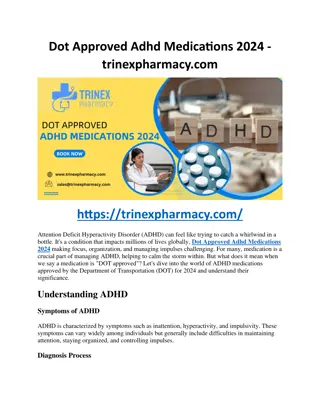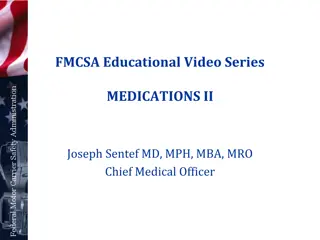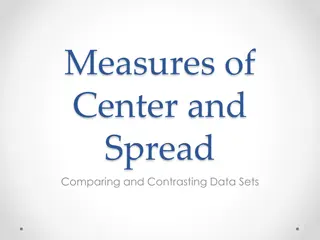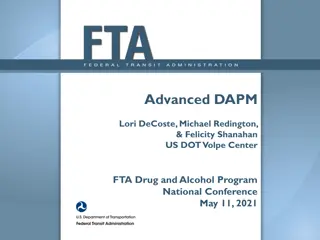Green Dot Locke ILT Meeting Summary
Explore highlights from the Locke ILT meeting on February 11, 2015, focused on revising the Risk of Failure policy. Discussions included the importance of ROF calls, aligning with Ed Code language, and the autonomy of teachers in determining student grades. Dive into the agenda covering business items, research review, and subject team planning time. Gain insights into the key points of the Locke Risk of Failure Policy and its implications.
Download Presentation

Please find below an Image/Link to download the presentation.
The content on the website is provided AS IS for your information and personal use only. It may not be sold, licensed, or shared on other websites without obtaining consent from the author. Download presentation by click this link. If you encounter any issues during the download, it is possible that the publisher has removed the file from their server.
E N D
Presentation Transcript
Welcome! Please sit in department groups. Brainstorm any Leading Green shout-outs! 1
Locke ILT Meeting February 11, 2015 325 East 111th Street | Los Angeles, CA 90061 | greendot.org/locke
325 East 111th Street | Los Angeles, CA 90061 | greendot.org/locke
Agenda I. Business (30min) ROF Feedback (20min) Budget (10min) II. Research Review and Application (90min) Marzano Chapter 4 Jigsaw Review (20min) Learning Progressions (40) Subject Team Planning Time (30min) 6
Revising the Locke Risk of Failure Policy Old Language: In order to assign a letter grade of F for a student, teachers must contact families twice during a semester and log the calls in Power School under ROF. Failure to make two ROF calls will result in a grade being changed from F to D. Issue: While Ed Code requires written notice or parent contact from the classroom teacher when a student is in jeopardy of failing, Ed Code is silent on what happens if they do not but Ed Code does say that the final grade baring clerical error, mistake, fraud, bad faith or incompetency is to be determined by the teacher and the school cannot require a teacher to change a grade. According to CA Ed Code and GDPS policy, we cannot require teachers to changes Fs to Ds because they did not make ROF calls. 7
Locke Risk of Failure Policy Ed Code Language Although as a charter school we are not beholden to Ed Code, it does provide guidance on the Locke Risk of Failure Policy and grades. Spend 2 minutes discussing the key points with your triads. 49066. (a) When grades are given for any course of instruction taught in a school district, the grade given to each pupil shall be the grade determined by the teacher of the course and the determination of the pupil's grade by the teacher, in the absence of clerical or mechanical mistake, fraud, bad faith, or incompetency, shall be final. (b) The governing board of the school district and the superintendent of such district shall not order a pupil's grade to be changed unless the teacher who determined such grade is, to the extent practicable, given an opportunity to state orally, in writing, or both, the reasons for which such grade was given and is, to the extent practicable, included in all discussions relating to the changing of such grade. 49067. (a) The governing board of each school district shall prescribe regulations requiring the evaluation of each pupil's achievement for each marking period and requiring a conference with, or a written report to, the parent of each pupil whenever it becomes evident to the teacher that the pupil is in danger of failing a course. The refusal of the parent to attend the conference, or to respond to the written report, shall not preclude failing the pupil at the end of the grading period. 8
Locke ROF Policy Small Group Discussion Spend 5 minutes in triads discussing the questions below. Be prepared to share out at least one response. Why is it important for classroom teachers to communicate with the parents of students in danger of not passing a course? What challenges/difficulties keep teachers from communicating with the parents of students in danger of not passing their class? Based upon the language of Ed Code, which requires teachers to conference with or provide written notification to the parents of students in danger of failing a course, what should be the expectation at Locke- a high school serving the most disadvantaged learners in the State of California? 9
Notes and Feedback Why is it important for classroom teachers to communicate with the parents of students in danger of not passing a course? Parent needs to know that students are failing. Parent might send the student off in the morning and think everything is ok when it isn t. Students can misrepresent or interfere with communication. Parents hold the power at home so it important to get them on the same page. What challenges/difficulties keep teachers from communicating with the parents of students in danger of not passing their class? Number of failing students can mean a large number of phone calls. Some telephone numbers are inaccurate, not-working, or missing. Difficult even after following up with the office. Language barriers can be an issue. Teachers may have a perception that parents are not concerned or involved. Logging after the phone calls in time consuming. System seemed more complicated for teachers who were already calling or systems that already existed. Blackboard calls have to be alphabetized by entire list of students and can be time consuming. Are there other systems for communication (email)? Based upon the language of Ed Code, which requires teachers to conference with or provide written notification to the parents of students in danger of failing a course, what should be the expectation at Locke- a high school serving the most disadvantaged learners in the State of California? Issue it not with mindset but with feasibility and timing. What counts as contact? Other forms of contact? How can we share responsibility across schools? Is written form most appropriate? Can this be achieved through teacher comments in PS? How do we modify parent conferences or a point of contact to achieve this? 10
Locke Revised Risk of Failure Policy Proposed Revised Policy: Classroom teachers need to contact the parents of their students who are in danger of failing a course twice during a semester. During these Risk of Failure (ROF) calls or written notices the teacher should indicate the reason(s) why a student is in jeopardy of failing, what immediate action(s) the student can do to improve his/her grade as well as inform the family of the teacher s schedule for office hours. The calls/notices should be logged in Power School as ROF(1 or 2 depending on the semester) and a brief description of the conversation/notice should be included in the body of the log entry or the written ROF Notice should be copied and placed in the student s cum. Calls/notices can be given at any time in the semester but teachers are encouraged to make ROF calls/notices between 1st/3rd quarter progress reports and up to three weeks following the 15 week progress reports. The purpose of ROF calls/notices is to give students concrete suggestions and sufficient time to improve their course grades before the end of the semester. Spend 5 minutes in your triads discussing the proposed revised ROF Policy. What are the strengths? Areas of concern? Proposed modifications? What supports will teachers need? What should our next steps be? 11
Notes and Feedback What are the strengths? Option between calling and written forms. Does not require a change of grade. Can lend itself to a consistent routine and facilitate student led conferences. Recommendations for a timeline of calls (specificity). What are the areas of concern? Teachers need to find ways to specify to parents who to actually raise grades (not just turn in piles of all missing work). Policy does not include specific time (collaboration or PD) for teachers to make calls. Equity between caseloads of teachers (number of students, intervention vs honors classes). What are proposed modifications? Add home visits as an option? Clarification around ROF1 for calls vs. semester. Screen shots of exemplars for logging. Jupiter Ed as a possibility? What supports will teachers need? Time to make calls during collaboration. Access to BlackBoard for teachers! Can academies send out reminder lists of failing students to teachers along with a reminder to make calls? Can we channel calls through Advisory teachers? What should next steps be? Send out Powerpoint to everyone for feedback! 12
Agenda I. Business (30min) ROF Feedback (20min) Budget (10min) II. Research Review and Application (90min) Marzano Chapter 4 Jigsaw Review (20min) Learning Progressions (40) Subject Team Planning Time (30min) 13
Finalizing the Budget As a department of Subject-Team Leads, determine priorities for ordering with the remainder of the budget this year and the allocated funds for next year. Choose one representative from the department to complete the Department Budget tool and email to Tae, Gordon, and the Principals. 14
Agenda I. Business (30min) ROF Feedback (20min) Budget (10min) II. Research Review and Application (90min) Marzano Chapter 4 Jigsaw Review (20min) Learning Progressions (40) Subject Team Planning Time (30min) 15
Why Review Research During ILT? Effective District Leaders Create a Common Language Creating a common, widely understood language is an important element in any substantive change process. Effective districts are attentive to developing a shared understanding of a common vocabulary about practice. Although this sounds relatively simple, many districts settle for the use of jargon without developing a common understanding of the implications for specific action behind the terms. Differentiated instruction, response to intervention, formative assessment, and professional learning communities are just a few examples of terms commonly being used in districts where educators have no clear or consistent understanding of what those terms mean (34). - DuFour and Marzano, Leaders of Learning: How District, School, and Classroom Leaders Improve Student Achievement 16
Chapter 4 Jigsaw 1. On pages 64-65 Marzano contends that Typically, selected- response items address the score 2.0 content while the short constructed response items address the score 3.0 and 4.0 content. What are some compelling reasons for this assertion? Under what circumstance(s) are selected-response questions good measures of 3.0 and above content? 2. Look at Table 4.7 on page 65, what is the fundamental difference between the constructed response questions in section II and section III? 3. Review Table 4.8 on page 66. If you were the teacher, what final score would you give the student on this assessment and why? Repeat for Table 4.9 on page 67. 4. With the shift to the Common Core, what types of questions should teachers in your subject teams regularly include on their Formative Assessments? Why? 17
Chapter 4 Headline Synthesize your table discussion into a headline (no more than 7 words) summarizing your #1 takeaway from chapter 4. 18
Agenda I. Business (30min) ROF Feedback (20min) Budget (10min) II. Research Review and Application (90min) Marzano Chapter 4 Jigsaw Review (20min) Learning Progressions (40) Subject Team Planning Time (30min) 19
Elements of Effective Formative Assessments Student- Generated Assessme nt Grading and Reporting Tracking Student Progres s Define Proficiency Scales for Each Standard 3 Levels of Question s MOD M Backwards Mapping from Summativ e Assessme nt DD I Design Formative to Match Rigor of Proficiency 20
Learning Progressions The purpose of formative assessment is to provide feedback to teachers and students during the course of learning about the gap between students current and desired performance so that action can be taken to close the gap. To do this effectively, teachers need to have in mind a continuum on how learning develops in any particular knowledge domain so that they are able to locate students current learning status and decide on pedagogical action to move students learning forward. Learning progressions that clearly articulate a progression of learning in a domain can provide the big picture of what is to be learned, support instructional planning, and act as a touchstone for formative assessment. - Margaret Heritage (2008) 21
Teacher Models of the Use of Learning Progressions Shana Murphy Developing a Formative Assessment with 3 Levels of Questions Sarah Mofford and Sarah Anzelmi Using/Adapting Proficiency Scales 22
Lets Practice! Choose a standard or skill you will be working on in the next couple of weeks. You may work individually or in a pair or small group. Use the resources in Marzano s Using Common Core Standards (or other materials) to help break down the standard into a learning progression. Define what each level of understanding would look like for that particular standard. 23
Creating Learning Progressions Standard/Skill: ___________________________________________ Grade Meaning What Does This Look Like for this Standard? Advanced Understanding Rubric Score: 4.0 A Proficient Understanding Rubric Score: 3.0 B Basic Understanding Rubric Score: 2.0 C Beginning Understanding Rubric Score: 1.0 D Limited/No Understanding Rubric Score: 0 F 24
Reflection Questions What was helpful about this process? What was difficult about this process? How can you communicate these ideas to your subject team? 25
Agenda I. Business (30min) ROF Feedback (20min) Budget (10min) II. Research Review and Application (90min) Marzano Chapter 4 Jigsaw Review (20min) Learning Progressions (40) Subject Team Planning Time (30min) 26
Subject Team Collaboration and Planning Time 40min Use this allotted time to plan for Subject-Team Time. Upcoming Subject-Team Time Friday, February 13th PD Time Friday, February 20th EL PD Determine priorities for your Subject-Team to meet the outlined goals. Subject teams may be in different places but should be planning to best meet the needs of the teachers in that team. 27
Priorities for Subject-Teams Develop a unit pacing plan that backwards maps off of the CAP Develop and administer one common formative assessment per unit Complete DDI cycle Plan and develop MODM Ensure equitable grading practices and grade books Administer weekly formative assessments Plan lessons that incorporate ATTACK or SEARCH Create formative assessments with three levels of questions (nice to have) 28
Possible Activities to Meet Subject-Team Goals Analyze gradebooks as a subject-teams to determine number and frequency of formative assessments Determine responsibilities in subject-teams to maintain accountability for meeting formative assessment goals Engage in DDI around a common formative or summative assessment Create or provide feedback on formative assessments Calibrate around grading student responses with mastery grading rubric Provide a mini-mastery grading PD if your subject-team needs that support Select one CRTF indicator and plan a mini-PD for subject- team if the team needs development in a CRTF focus area Select a Teach Like a Champion signature strategy if your subject-team needs deeper understanding of a practice 29








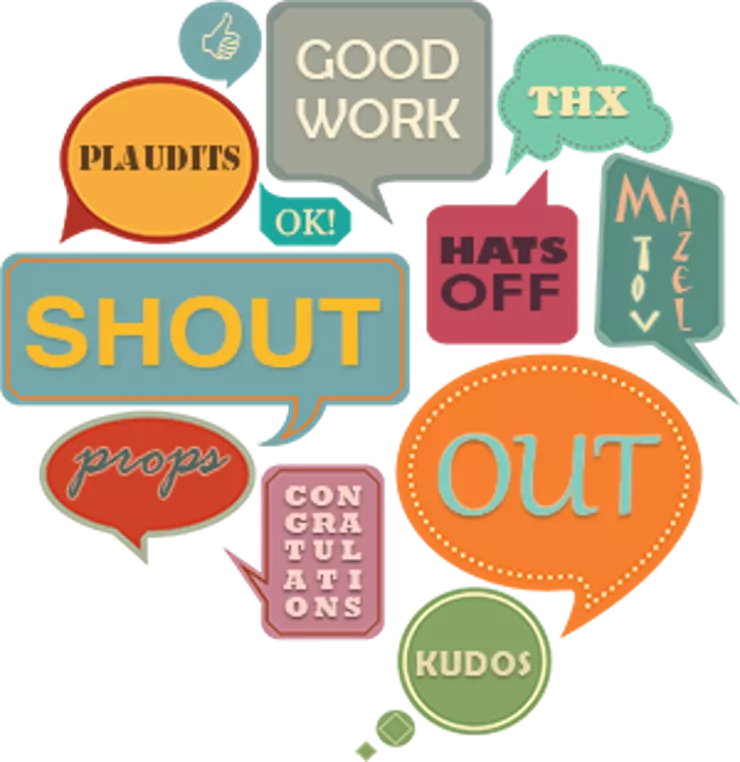

![[PDF⚡READ❤ONLINE] Planet Mercury: From Pale Pink Dot to Dynamic World (Springer](/thumb/21549/pdf-read-online-planet-mercury-from-pale-pink-dot-to-dynamic-world-springer.jpg)



